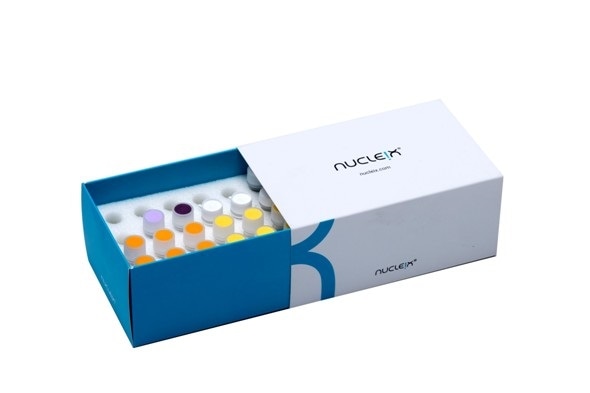Jul 26 2018
Results of the European multi-center study of Bladder EpiCheck™ urine test, supporting reduction of invasive procedures, were published in the European Urology Oncology journal
Nucleix Ltd., a leading cancer detection and screening company, announced today that the multi-center European study results with its Bladder EpiCheck™ urine test for the detection of bladder cancer recurrence, were published in the European Urology Oncology journal. The results demonstrate best-in-class performance of Bladder EpiCheck and support the reduction of follow-up invasive procedures.

Bladder EpiCheckTM, for non-invasive detection of bladder cancer recurrence
The multi-center, single-arm, prospective, double-blind clinical study was performed in five leading urology centers in Europe, on 440 patients who were recruited in their first year of follow-up. The study compared the results of Bladder EpiCheck to the current gold standard follow-up sequence (cystoscopy, cytology and pathology verification). Bladder EpiCheck demonstrated a clinically relevant and high negative predictive value (NPV), with NPV of 99.3% and sensitivity of 91.7% (both excluding patients with low-grade tumors) and specificity of 88%.
“High NPV in high grade cancers is essential for the applicability of a urine test in clinical decision making. An NPV of 99.3% means that a patient with a negative Bladder EpiCheck result is free of high-grade cancer in 99.3% of the cases. Therefore, allowing us to avoid cystoscopies, which are unpleasant invasive procedures,” commented Prof. Fred Witjes, Radboud UMC in Nijmegen, the Netherlands and the principal investigator of the study. “Bladder cancer is a highly recurring disease and the most expensive cancer per a patient’s lifetime. Follow-up cystoscopies are required up to four times a year in the first years, reducing gradually to an annual cystoscopy for the lifetime of a patient. Bladder EpiCheck provides the best results in urine tests for bladder cancer follow-up, and it is an important tool that can help reduce those follow-up cystoscopies.”
Bladder EpiCheck is a CE approved urine test for monitoring of bladder cancer that was clinically validated in several independent cohorts in leading hospitals and labs throughout Europe. Bladder EpiCheck has shown in clinical trials best performance of a non-invasive tool in detection of bladder cancer recurrence when compared to the invasive standard-of-care. The test is objective, operator independent and requires standard laboratory equipment. Bladder EpiCheck is based on Nucleix’s proprietary molecular biomarker technology, which combines new biochemical assays and sophisticated algorithms. The technology is based on identification and analysis of subtle changes in DNA methylation patterns, a powerful tool for distinguishing between cancer and healthy cells and thus for detection of tumors in the body.
“We are very pleased with the impressive results of our robust, multi-center, European Bladder EpiCheck trial, and with the publication of the data in the prestigious European Urology Oncology journal, providing scientific validation for our Bladder EpiCheck urine test and its underlying technology,” stated Opher Shapira, Ph.D., CEO of Nucleix. “Bladder EpiCheck’s market penetration looks promising as several leading hospitals and labs in Europe have already began using our kits. In parallel, we are now developing additional assays for the detection of other types of cancers, such as lung and liver cancer.”